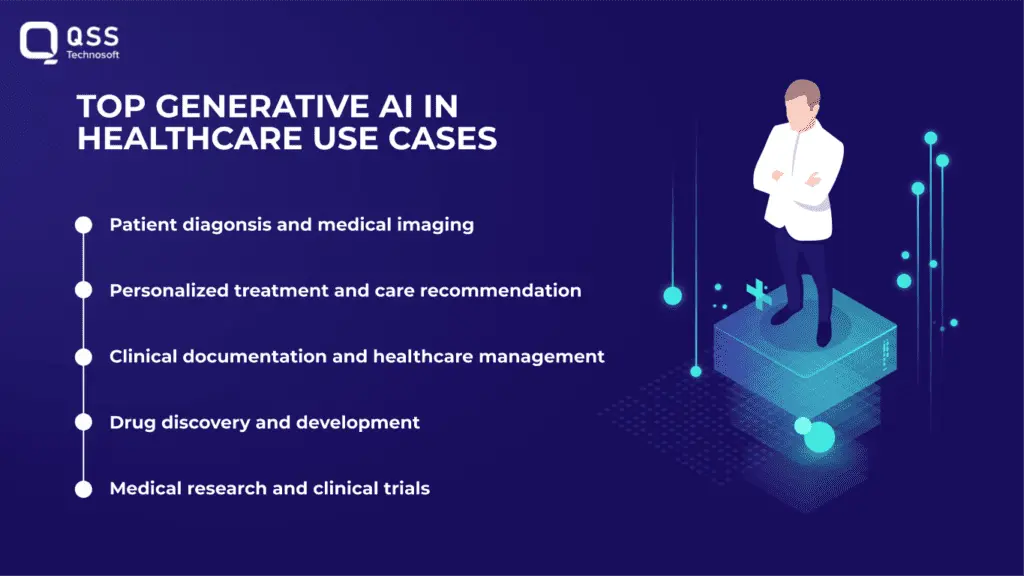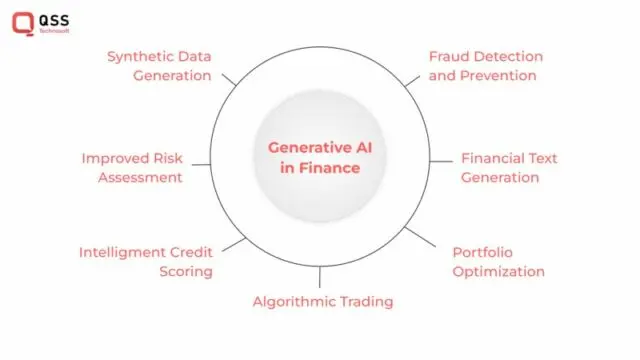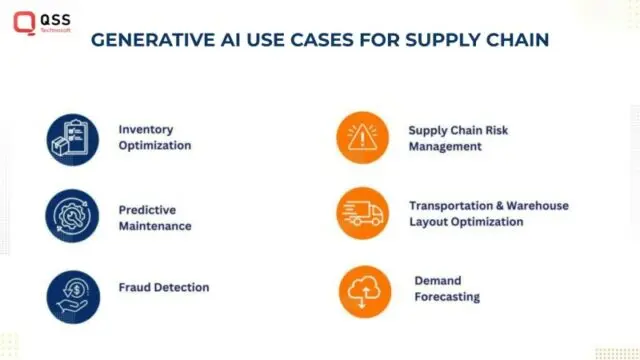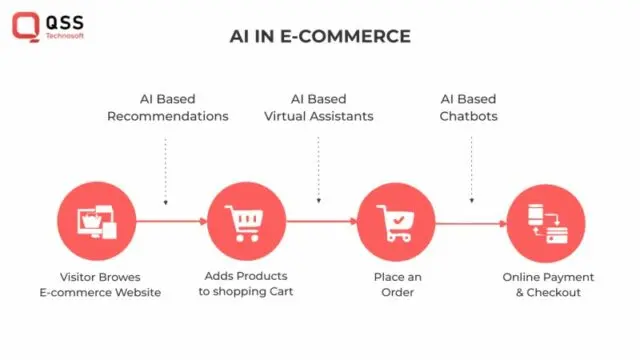Have you ever wondered if machines can imagine things? Well, there’s a new and exciting technology called Generative AI that can create images, texts, and videos just like humans. It learns from existing data and uses something called generative adversarial networks (GANs). This technology is transforming industries like healthcare, fintech, supply chain, retail & e-commerce, education, automotive, and entertainment.
But how does it all work?
Generative AI is like a creative assistant for doctors. In the healthcare industry, it can help doctors make better diagnoses by generating medical images. For example, if a patient has a mysterious lump, generative AI can create an image to help doctors visualize what it might be. This can lead to quicker and more accurate diagnoses, ultimately improving patient care.
This is not just limited to healthcare but covers many industries as a whole.
Generative AI has amazing applications in healthcare. It can help doctors make better diagnoses, and in studies, it has shown to be right 87% of the time! In the retail industry, it can create personalized product recommendations that make customers happier and increase sales by 25%. These are just a few examples of how generative AI is making a big impact.
Let’s take a closer look at how generative AI is changing these industries and making our lives better.
In this blog, we will explore the impact of generative AI on these industries. So, make sure to read this till the end.
Read Our Old Blog: Create Your Ultimate AI Toolbox for Interior Design and Architecture
Industry-Specific Applications
Healthcare
Generative AI has immense potential to revolutionize the healthcare industry. From medical image synthesis and diagnosis to treatment recommendations and drug discovery, generative AI can assist healthcare professionals in delivering more accurate and efficient care.
For example, generative AI algorithms can synthesize medical images to help doctors visualize potential ailments, leading to quicker and more accurate diagnoses. Generative AI can also analyze health records to provide personalized treatment recommendations and predict disease outcomes.

Fintech
In the fintech sector, generative AI can play a crucial role in enhancing fraud detection and prevention. By analyzing vast amounts of financial data, generative AI algorithms can identify patterns and anomalies indicative of fraudulent activities.
This technology can also be utilized in creating personalized financial products and services, such as investment portfolios tailored to individual customers’ preferences and risk tolerance.

Supply Chain
Generative AI has the potential to optimize supply chain operations by predicting demand patterns, improving inventory management, and reducing transportation costs. Machine learning models powered by generative AI algorithms can analyze historical sales data and external factors such as weather conditions and holidays to forecast future demand accurately.
This information enables organizations to optimize inventory levels, allocate resources efficiently, and avoid stockouts or overstocking.

Retail & Ecommerce
In the retail and e-commerce industry, generative AI can enhance customer experiences and drive sales. One application of generative AI in this sector is generating personalized product recommendations based on individual customer preferences, browsing history, and purchase patterns.

This technology can also be used to create virtual try-on experiences, allowing customers to visualize how products will look on them before making a purchase.
Educationa.Ephemeral Messaging
Generative AI can transform the education industry by enabling personalized learning experiences and automating administrative tasks. Adaptive learning systems powered by generative AI algorithms can tailor educational content and assessments to individual students’ needs, strengths, and weaknesses.
Additionally, generative AI can automate administrative tasks, such as grading, freeing up educators’ time to focus on delivering high-quality instruction.
Read Our Page: Mobile Application Development Company
Automotive
In the automotive industry, generative AI can accelerate the design and development of vehicles. By generating and simulating various design options, generative AI algorithms can help engineers optimize factors such as aerodynamics, fuel efficiency, and safety.
This technology can also be used to enhance driver assistance systems and improve autonomous vehicle capabilities.

Entertainment
Generative AI has immense potential in the entertainment industry, particularly in content creation. From generating realistic virtual characters and special effects to creating immersive virtual reality experiences, generative AI algorithms can push the boundaries of creativity.
Generative technology can also be used to create personalized content recommendations for users based on their preferences and viewing habits.
Common Trends and Cross-Industry Impact
Common Trends and Cross-Industry Impact of Generative AI are:
1. Automation:
- Reducing repetitive and time-consuming tasks
- Improving efficiency and resource allocation
- Examples:
- Healthcare: Automating medical image analysis for faster diagnoses.
- Supply Chain: Optimizing inventory management and demand forecasting.
2. Personalization:
- Tailoring products, services, and experiences to individual preferences
- Enhancing customer satisfaction and loyalty
- Retail & eCommerce: Providing personalized product recommendations based on user behaviour.
- Education: Offering personalized tutoring and adaptive learning experiences.
- Examples:
3. Data-Driven Decision Making:
- Analyzing large data sets to uncover insights and make informed decisions
- Enhancing outcomes in various domains
- Examples:
- Fintech: Detecting fraud patterns in credit card transactions using AI algorithms.
- Entertainment: Creating virtual characters and worlds based on data-driven insights.
4. Cross-Industry Collaboration:
- Using generative AI applications across different sectors
- Encouraging innovation and groundbreaking advancements
- Examples:
- Healthcare + Automotive: Collaborating on intelligent medical devices for real-time monitoring and personalized treatment recommendations.
- Supply Chain + Retail: Joint efforts in using generative AI for demand forecasting and seamless inventory management.
Challenges and Ethical Considerations
While generative AI presents immense opportunities, it also comes with challenges and ethical considerations. Let’s read some in detail
Quality and Accuracy:
One of the major challenges in generative AI is ensuring the quality and accuracy of the generated content. Generative AI algorithms heavily rely on existing data sets, which can be biased or incomplete, leading to biased or inaccurate outputs.
Ensuring the reliability of generative AI-generated content requires organizations to carefully curate and evaluate data sets to mitigate these biases and ensure the highest possible level of accuracy.
QSS Technosoft can assist organizations in ensuring high-quality data sets for training generative AI models, reducing biases, and improving the accuracy and reliability of generative AI outputs.
Read Our Old Blog : 10 Mind-Blowing Ways Artificial Intelligence is Changing Mobile App Development
Misuse and Malicious Intent:
Another ethical consideration is the potential misuse of generative AI for malicious purposes. Deepfake technology, which utilizes generative AI to manipulate videos and images, can be used to spread misinformation, commit fraud, or invade individuals’ privacy.
This raises concerns about the need for regulations and safeguards to prevent the misuse of generative AI and protect individuals’ rights and privacy.
QSS Technosoft can help organizations establish ethical frameworks and guidelines for the use of generative AI, promoting responsible and ethical AI development practices throughout the organization.
Intellectual Property and Copyright:
Generative AI introduces complex questions about intellectual property and copyright. As generative AI models can generate content that replicates existing works, ownership and copyright issues can arise.
Determining the rights and ownership of generative AI-generated content can be challenging and requires careful consideration and legal frameworks.
We ft can implement robust privacy and security measures to protect sensitive data used in generative AI models, ensuring compliance with data protection regulations and safeguarding individuals’ privacy.
Accountability and Responsibility:
With the increasing autonomy and decision-making capabilities of generative AI algorithms, questions around accountability and responsibility arise. If a generative AI algorithm makes a biased or harmful decision, who should be held accountable?
Establishing clear lines of accountability and responsibility becomes crucial to ensure transparency and mitigate potential negative impacts.
QSS Technosoft can implement methods and techniques to improve the interpretability and explainability of generative AI outputs, enabling organizations to understand and communicate the decision-making process behind generative AI-generated content.
Data Privacy and Security:
The use of generative AI requires access to vast amounts of data, much of which may be sensitive or personal. Protecting individuals’ privacy and securing this data becomes paramount.
Organizations must implement robust data privacy and security measures, comply with data protection regulations, and adopt best practices to ensure the confidential and secure handling of data used in generative AI models.
We can provide guidance and expertise on regulatory compliance, helping organizations address legal concerns and navigate intellectual property and copyright issues related to generative AI-generated content.
Ethical Decision-Making:
Incorporating ethical considerations into the development and deployment of generative AI systems is essential. Organizations must consider the potential societal impact of their generative AI applications, ensuring fairness, inclusivity, and respect for human values and rights.
Ethical decision-making frameworks should be established to guide the development and use of generative AI technology responsibly.
We can help organizations promote responsible AI practices, encouraging the fair and inclusive use of generative AI while considering ethical implications and societal impact.
Future Trends: Generative AI
The future of generative AI is promising, with several trends expected to shape its evolution.
Integration with Emerging Technologies:
According to a report by Deloitte, the integration of generative AI with other emerging technologies such as blockchain and IoT is projected to drive innovation in various industries. By using generative AI in combination with these technologies, organizations can create interconnected systems that enhance automation, personalization, and efficiency.
Ethical AI Development:a.Ephemeral Messaging
The ethical considerations surrounding AI are gaining significant attention. According to a survey by PwC, 85% of CEOs believe that ethical concerns will impact their business in the next five years. Organizations and researchers are placing a strong focus on developing ethical AI algorithms and frameworks for generative AI.
Advancements in Algorithms and Computing Power:
The advancements in generative AI algorithms and computing power will continue to drive the evolution of generative AI. According to OpenAI, their model GPT-3 has 175 billion parameters, enabling it to generate highly realistic and coherent content. As computational capabilities continue to improve, generative AI algorithms will become more sophisticated, allowing for the creation of even more complex and realistic content.
Industry Applications:
Generative AI is increasingly finding applications in various industries. According to a study by MarketsandMarkets, the global generative AI market is projected to reach $20.5 billion by 2027. Industries such as gaming, entertainment, design, healthcare, and manufacturing are adopting generative AI to enhance their operations and create new opportunities.
Democratization of Generative AI:
With the advancements in generative AI algorithms and the availability of open-source tools, the barriers to entry for utilizing generative AI are being lowered. This is allowing a broader range of organizations and individuals to explore and leverage generative AI for various purposes, fostering innovation and creativity
Human-AI Collaboration :
The future of generative AI is likely to involve closer collaboration between humans and AI systems. Instead of replacing humans, generative AI tools will assist and augment human capabilities, allowing for more efficient and creative workflows. This collaboration will enable humans to focus on higher-level tasks while leveraging the capabilities of generative AI for content generation and optimization.
How QSS can help
Do you require customized generative AI solutions tailored to your specific needs? QSS Technosoft is here!
QSS Technosoft is a leading provider of generative AI solutions with expertise in developing and deploying AI models. We can assist organizations in developing customized generative AI algorithms that ensure the highest quality and reliability of generative AI-generated content.
At QSS Technosoft, we also understand the importance of ethical AI development, and we can guide data curation and bias mitigation. Our range of consulting and training services can also help your organization understand the potential applications and benefits of generative AI, from strategy development to implementation support.
We’re committed to delivering innovative and ethical AI solutions that drive business growth and success.
Conclusion
Generative AI is changing industries by using automation and data to make personalized decisions. It’s being used in healthcare, fintech, supply chain, and entertainment to improve operations and give customers better experiences. However there are challenges and ethical concerns to consider when using generative AI, so organizations need to use it responsibly and reliably.
At QSS we can help you with this. We have the expertise to create and implement customized generative AI solutions that drive innovation and help businesses succeed. With QSS, you don’t have to worry about the future –we’ll guide you through using generative AI and make your goals a reality. It’s like having a magical genie powered by AI on your side!
So, don’t miss out on the exciting possibilities of generative AI. Partner with QSS and let us help you succeed.
We are proud to mention that our work has been recognized by leading B2B reviews and research platforms like GoodFirms, Clutch, MirrorView, and many more.


How Generative AI is Impacting Multiple Industries - GI Use Cases & Applications